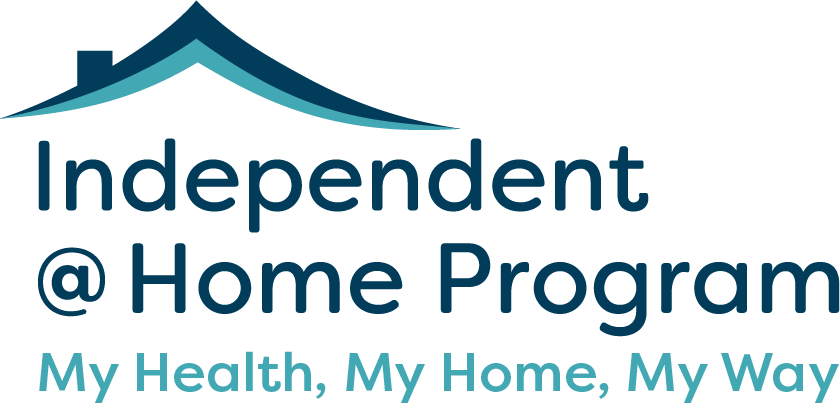Resources
Consumer Frequently Asked Questions (fAQ)
A Consumer, also known as a Community Member, is a medical assistance recipient whom a managed care organization (health plan) has determined eligible to participate in the Consumer Directed Personal Assistance Program (CDPAP).
A Personal Assistant is an adult who provides personal care assistance to a Consumer under their or their Designated Representative’s instruction, supervision, and direction.
A Designated Representative is an adult to whom a Consumer has delegated authority to assist and perform the Consumer’s responsibilities. A Designated Representative is able and willing to assist in making informed choices about the type and quality of services, including but not limited to nursing care, personal care, transportation, and respite services.
In traditional homecare models, a homecare agency usually assigns consumers home health aides, LPNs, and RNs to perform different levels of service. This means that you have contact with several different people who are assigned various tasks, and each adheres to different agency guidelines. Through the Consumer Directed Personal Assistance Program, there is only one level of service that you have contact with: the Personal Assistant. This simplifies the process by allowing you to train only the people you feel comfortable with to do everything you need.
Through the Consumer Directed Personal Assistance Program (CDPAP), Consumers or their Designated Representatives are empowered to become employers who are responsible for the recruiting, interviewing, hiring, training, supervising, and, if need be, dismissal of Personal Assistants. Consumers manage who gives them care and when they do it.
As a fiscal intermediary, the Independent @ Home Program is responsible for processing the payroll for each Personal Assistant you hire, handling employee benefits, monitoring the completion of annual health assessments, and providing you with the support and resources you need to keep your services running smoothly.
A Personal Assistant can be any adult over the age of 18 who is not legally responsible for the Consumer. In other words, a spouse or Designated Representative cannot be a Consumer’s Personal Assistant. This means that family or friends, including those residing in the same house as the Consumer, can become a Personal Assistant as long as they are not legally responsible for the individual.
There are several places where you can find individuals looking to work as Personal Assistants.
You can:
- search Facebook and other social media posts and groups, NextDoor and other neighborhood apps, senior centers, and community spaces.
- post ads at local places in the community, such as colleges, libraries, laundromats, grocery stores or places of worship.
- post an ad in the newspaper or on an online job search engine.
As many as you want! However, you cannot schedule them to work at the same time or to work more than the total weekly hours authorized by the managed care organization (health plan). Also, be sure to employ backup Personal Assistants that you can call in case regular Personal Assistants take sick or personal time.
Your Personal Assistant is responsible for the items that are outlined on your Plan of Care. Medicaid will only pay for the tasks completed on this outline. If you have specific questions regarding what your Personal Assistant is allowed to do, please check with your caseworker before assigning it to a Personal Assistant.
The Independent @ Home Program has a variety of training tools that can be used by both you and your Personal Assistant(s), including Relias Online Training, interactive presentations, and informational pamphlets. Please feel free to contact the Independent @ Home Program with any additional questions or concerns you have.
No, your Personal Assistant may not work for you while you are in the hospital. This is because Medicaid is paying for you to receive care in the hospital, and the state does not allow for separate entities to be paid at the same time. However, your Personal Assistant can work for you until you are admitted and after you are discharged.
As an employer, you are solely responsible for training and terminating your Personal Assistants. However, we know that this may be a very difficult task. The Independent @ Home Program can help you learn to train and communicate with your Personal Assistant(s), correct problem behavior, and terminate an employee. If you do choose to terminate a Personal Assistant, please let the Independent @ Home Program know as soon as possible so appropriate paperwork can be processed.
Medicaid Fraud Frequently Asked Questions (fAQ)
The crime of Medicaid fraud is the act of any person who, with the intent to defraud New York State through any medical assistance program created under the federal Social Security Act and administered by the Department of Health, knowingly:
- Allows to be paid any false or fraudulent claim for furnishing services or;
- Submits false information for the purpose of obtaining greater compensation than that to which he/she is legally entitled for furnishing services or;
- Submits false information for the purpose of obtaining authorization for furnishing services.
Anyone involved in a Medicaid program can commit Medicaid fraud, including:
- People with Medicaid.
- Doctors and healthcare professionals.
- Suppliers of medical equipment.
- Employees of physicians.
- Employees of companies that manage Medicaid billing.
- Submitting Personal Assistant time that wasn’t actually worked.
- Consistent failure to complete the Plan of Care.
- Receiving accidental overpayment and not reporting and returning it.
- Requiring the Personal Assistant to do work not listed on the Plan of Care.
There are multiple efforts in place to detect fraud. These include:
- CMS Fraud Prevention System—Similar to credit card technology, screens every Medicaid claim.
- Integrity Contractors—Teams hired to gather information and investigate claims across the country. These include HEAT Strike Force Teams; Zone Program Integrity Contractors; Recovery
- Audit Program; and Medicaid Integrity Contractors.
- You could be required to pay a fine.
- You could lose your Medicaid benefits.
- You could be arrested and spend time in jail.
- You could be excluded from participating in any Medicaid funded program again.
Call the New York State Office for the Medicaid Inspector General at 1-877-873-7283 and the Independent @ Home Program at 1-800-234-2211.

